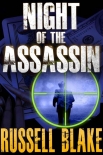The Gangster, Clive Cussler [ebook smartphone txt] 📗

- Author: Clive Cussler
Book online «The Gangster, Clive Cussler [ebook smartphone txt] 📗». Author Clive Cussler
His immigrant laborer disguise worked perfectly. Moments after he was issued a pay number on a brass token, he was approached by a “key”—a Black Hand extortionist who pretended to be a terrified fellow laborer.
“Did you hear?” the key whispered. “The Black Hand says each man has to give a dollar on payday. They kill us if we don’t pay up.”
“Take me to your boss.”
“What boss?”
Branco fixed him with a cold stare. “When your boss learns that you didn’t take me to him, he will kill you.”
Vito Rizzo, the Black Hand gangster dealt a broken nose and a ragged ear by the Van Dorns, had been told at “confession” to establish a labor extortion racket at Cornwall Landing and await orders. He operated out of a board-on-barrels saloon down the road from the siphon shaft.
When his gorillas marched a soot-blackened pick and shovel man into his back room, he addressed the laborer with utter contempt, failing to recognize a richly clad Little Italy prominente he had seen occasionally from a distance.
Antonio Branco handed him a brass token. It looked exactly like the payment number identification check he had been issued at the gate.
“Turn it over.”
A simple asterisk had been punched into the metal.
Rizzo jumped to his feet. “Get out of here,” he shouted at his gorillas. “All of ya.” He slammed the door behind them. Then he tugged off his hat and stared at his boots, making a point of not looking at Branco’s face—demonstrating that he could never identify this man who held over him the power of life and death.
He spoke humbly, and he made no effort to hide his fear.
“May I please help you, Dominatore?”
“I need a place to clean up and eat while you get me fresh clothes, a length of bell cord, a blasting cap, and a stick of dynamite.”
The moon hovered inside a silver halo.
Full and perfectly round.
The dark returned.
The doctors had never met anyone like the extraordinarily beautiful young woman, dressed in traveling tweeds and wearied by days on the train. She fixed them with a sharp, clear-eyed gaze that brooked no equivocation and no platitudes. Each found himself struggling to answer as straightforwardly as their professors had demanded at medical school.
“We are reasonably certain he suffered no lacerations of the brain. There are no indications of even slight capillary hemorrhage.”
“Nor lesions in either hemisphere.”
“The only marks on his head were old scars, long healed. There are no wounds to his torso or his limbs. It was quite miraculous—almost as if a giant hand had closed around him when the building caved in.”
She said, “But still he sleeps.”
“It is possible this confirms a diagnosis that his stupor, or coma, resulted from asphyxia caused by inhalation of poisonous gas.”
“When will he awaken?”
“We don’t know.”
“Will he awaken?”
“Well . . . there is hope in that he was a strong man.”
She rounded on them, fiercely. “He is a strong man.”
28
In the immortal words of Brewster Claypool: Money is made when the smart money acts on their smart ideas—bless their smart little hearts.
Dead only five days, and already Culp missed him.
The conductor called, “Engineer’s ready when you are, sir.”
“One more,” said Culp.
His man from eastern Pennsylvania was pacing the private train platform. Culp lowered his window. “Send in that bloody lawyer.”
In came the bloody lawyer. He was one of a bunch that had reported to Claypool—sparing Culp the tedium—and he was everything that Culp’s old “partner in crime” had not been: colorless, humorless, and duller than dishwater.
“The Department of Justice is widening the investigation of the Ramapo Water Company.”
Culp’s face darkened. The Ramapo Grab—a dodge he and Claypool had cooked up to take over New York’s water supply—would have milked the city of $5,000,000 a year every year for forty years.
“I thought you had spent a lot of my money encouraging them not to investigate.”
“It would appear that the Progressives want to make an example.”
“Why not make an example of J. P. Morgan? He stuck his big nose in the ship canal limelight. Why don’t they shine it on him?”
The Washington lawyer answered blandly. “I’m afraid, sir, we must accept that it is what it is.”
Lawyers loved that line of talk. “It is what it is” shifted the blame for their incompetence to the client.
“Roosevelt is behind this.”
“It is President Roosevelt’s Justice Department. In fact, sir, I would be remiss not to warn you that the impulse to prosecute appears to come straight from the White House.”
“But why me, dammit? Why not Morgan’s canal?”
Brewster Claypool would have mimicked Roosevelt fulminating in a high-pitched falsetto: “Ramapo would levy a two-hundred-million-dollar rich-man tax against the parched citizens of the nation’s greatest city.”
Bloody, bloody hell!
“Did you say something, sir?”
This was much worse than Culp had feared. “I’m leaving Scranton,” he said.
“Shall I ride back to New York with you, Mr. Culp? I can catch a Washington express from there.”
Culp’s conductor rousted the lawyer off his train.
His engineer blew the ahead signal.
His locomotive steamed from the private platform, maneuvered out of the yards onto a cleared track, and began to labor up the steep grade into the Pocono Mountains. Culp got to work, dictating mental notes into a graphophone. Suddenly, the front vestibule door flew open, admitting the full thunder of the straining locomotive. He looked up. As swarthy a complexioned Italian as ever had sneaked past immigration officials pushed into his car.
29
“Where the devil did you come from?”
Culp did not wait for the intruder to answer but instead grabbed his pistol from his desk drawer and leveled it at the swarthy man’s head. The only reason not to put a bullet through it was that he might





Comments (0)